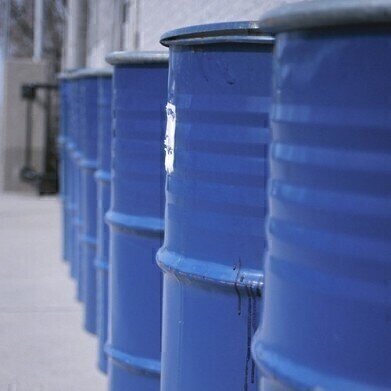-
 With the increase in oil production, more trains are used to transport crude across the US
With the increase in oil production, more trains are used to transport crude across the US
Fuel for thought
US 'leaked more oil in 2013 than previous four decades'
Jan 23 2014
Oil leaks as a result of freight train accidents and derailments in the US caused over 1.15 million gallons of crude to spill in 2013 alone. An analysis performed by McClatchy of data from the Pipeline and Hazardous Materials Safety Administration has found that a greater amount of crude oil was spilled in 2013 than in the almost 40 years that data has been collected on oil spills in the US.
More oil has been found to have spilled last year than was leaked between 1975 and 2012. While 2013 saw over 1.15 million gallons of crude spilled from transport trains, the previous 38 years saw only around 800,000 gallons spilled in total. The huge amounts of crude spilled in the US doesn't include the estimated 1.58 million gallons leaked as a result of the Lac-Megantic, Quebec, train derailment, which caused masses amounts of damaged and killed 47 people on July 6th 2013.
The findings are another piece of evidence that is fueling the concerns for the safety of transporting oil via rail. With oil production booming within the US over the past few years, the number of trains that are being used to transport oil and petrochemicals has risen, increasing the chance of further accidents and more spills.
The majority of the North American oil boom is centred around the Bakken formation in North Dakota, which is a 200,000 square mile rock formation that provides around ten per cent of the oil produced in the US. The state of North Dakota is currently producing a few hundred thousand barrels of oil every day, which is more than the current pipeline infrastructure can deal with.
Not only has the large amount of oil being produced increased its transport by rail, the industry prefers to sell the product on the west and east coasts as it fetches a higher price due to the area being inaccessible to most pipelines. This means that more trains are being used to transport oil to these areas, increasing the number of carloads from 9,500 in 2008 to 234,000 by 2012.
Due to the increase in the number of spills and the amount of oil being released into the environment as a result, industry regulators have started to look at transportation practices and train safety. It is not yet clear if they will create any new policies in an attempt to reduce the oil spills experienced in the US as a result of oil rail transportation.
Digital Edition
PIN 25.6 Buyers' Guide
January 2025
Buyers' Guide Directory - Product Listings by Category - Suppliers Listings (A-Z) Articles Analytical Instrumentation - ASTM D7042: The Quantum Leap in Viscosity Testing Technology -...
View all digital editions
Events
Jan 20 2025 San Diego, CA, USA
Jan 22 2025 Tokyo, Japan
Jan 25 2025 San Diego, CA, USA
SPE Hydraulic Fracturing Technology Conference and Exhibition
Feb 04 2025 The Woodlands, TX, USA
Feb 05 2025 Guangzhou, China


















